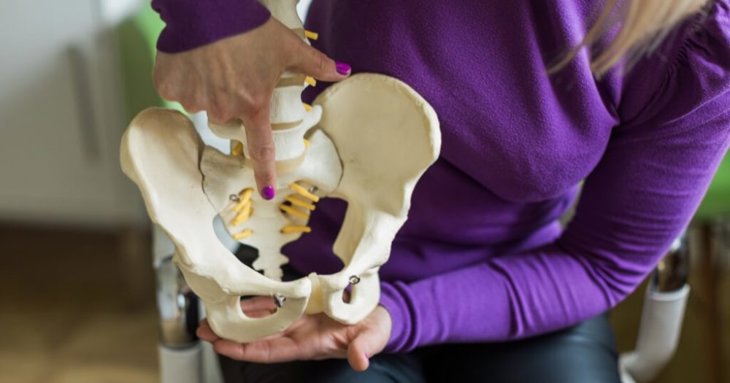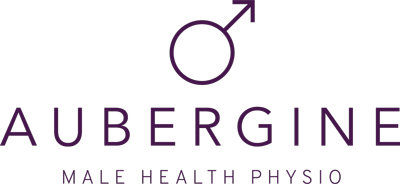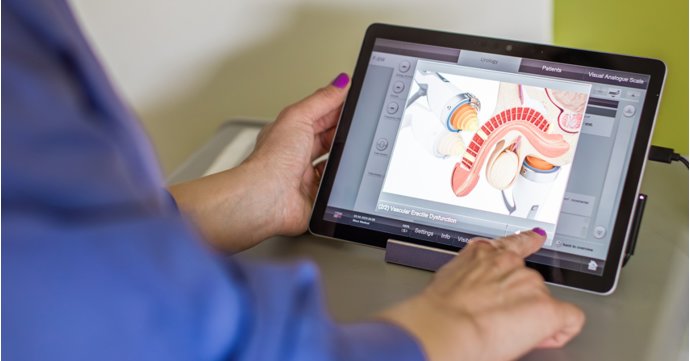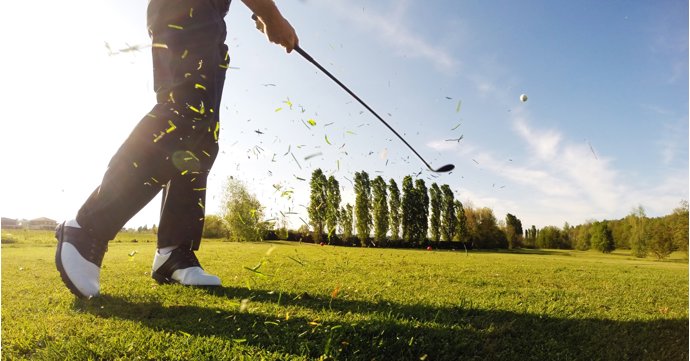As the only dedicated men's health clinic in Gloucestershire, Aubergine Physio in Cheltenham specialises in managing and treating a range of conditions, including chronic pelvic pain syndrome (CPPS).
With no discernible cause, CPPS is a common type of non-bacterial prostatitis that causes pain and discomfort around the pelvic area — often resulting in sexual and urinary problems which can have a damaging effect on men's confidence and wellbeing.
Director Stephanie Smith-Rowles explains how Aubergine Physio treats this condition with a holistic, patient-centred approach, encompassing a course of innovative Focused Shockwave Therapy to treat persistent pain.
What is chronic pelvic pain syndrome?
Chronic pelvic pain syndrome, commonly referred to as CPPS, is a condition characterised by long-term, persistent pelvic pain and discomfort, with no evidence of bacterial infection.
It's the most common type of prostatitis — a non-cancerous condition which affects the prostate gland; in fact, research from Prostate Cancer UK suggests that around 90- to 95 per cent of men with prostatitis have this particular type.
CPPS can affect men of all ages, but it's most often seen in people between the ages of 20 and 50.
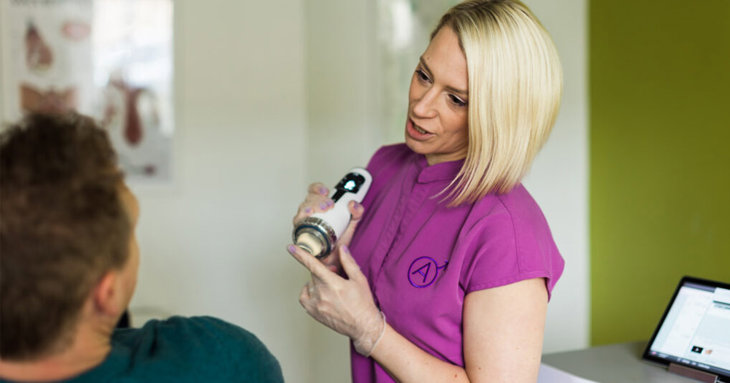
What causes chronic pelvic pain syndrome?
It's unknown what causes CPPS exactly — unlike other types of prostatitis, it isn't usually caused by bacterial infection.
There are a number of factors that might contribute to the development of this condition, like a history of urinary tract infections; previous prostate or pelvic surgeries; stress, anxiety or depression; or injury or trauma to the pelvic region. For some, the pain may originate from the muscles or nerves in that area.
Overactivity of the pelvic floor musculature, or an inability to fully relax the pelvic floor, can also contribute to CPPS — this can be aggravated by activities like cycling, weightlifting, sitting on hard surfaces or wearing tight clothing around the pelvis and perineum.
What are the symptoms of chronic pelvic pain syndrome?
The symptoms of CPPS can vary from person to person, as well as in intensity and duration, but may include:
- Pain or discomfort in the pelvic area, including the lower abdomen, scrotum, tip of the penis, the area between your testicles and rectum (perineum), inner thighs and lower back. Men often describe the feeling of being sat on a rock or golf ball.
- Urinary problems, including increased frequency, urgency and difficulty initiating or maintaining urine flow. You may also feel like you haven't emptied your bladder properly and experience discomfort or pain while urinating.
- Painful bowel movements.
- Sexual problems, including pain during or after ejaculation, premature ejaculation, erectile dysfunction or decreased libido.
CPPS can have a significant impact on your mental and emotional wellbeing, too, which can lead to anxiety, depression or increased stress levels.
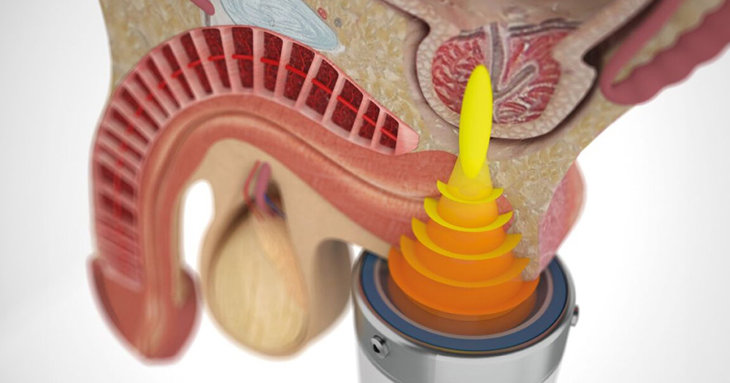
What is Focused Shockwave Therapy and how can it treat chronic pelvic pain syndrome?
Focused Shockwave Therapy works by delivering high-pressure, low frequency sound waves into targeted areas of the body, to increase blood flow and encourage the regeneration of damaged tissues. It has a proven pain-relieving effect, too.
When treating CPPS at Aubergine Physio, our expert physiotherapists adminster specialised, non-invasive sound waves to treat different areas of the penis and perineum, in order to stimulate tissue repair and promote healing.
The treatment is fairly quick and can reproduce your symptoms of pain within the pelvis, perineum, penis or scrotum — this is a good sign as it means that we are targeting the right trigger points within the pelvic floor and the crura nerve bundle around the prostate. It generally feels like a sharp dull ache, but we keep the intensity at a tolerable level of comfort; if we can reproduce your symptoms then we can usually ease your symptoms, with each session only lasting around 20 minutes.
It's important to note that before we can get started on treatment for CPPS, we'll need a consultant urologist or andrologist referral to confirm you do not have bacterial prostatitis. You can't start a course of Focused Shockwave Therapy while taking antibiotics to treat other types of prostatitis.
What can patients expect when getting treated for chronic pelvic pain syndrome at Aubergine Physio?
We're men's health experts with a nuanced understanding of the unique challenges men with CPPS face, so we take a holistic and patient-centred approach to treating this condition at Aubergine Physio.
Our treatment combines Focused Shockwave Therapy with targeted exercises, manual therapy and lifestyle changes to help address the symptoms and improve patients' overall wellbeing.
During an initial assessment, we deep dive on your history and specific symptoms. We then assess your spine, pelvis, hip joints, abdomen and the musculature in and around your pelvis. We don’t rush into internal pelvic floor assessment or release until we are satisfied that the more external and surrounding musculoskeletal anatomy isn’t contributing to your symptoms.
From here, we look to treat any spinal, pelvic or hip joint or muscle stiffness with manual therapy; we can also explore muscle tension in and around the pelvic floor.
Our expert chronic pain and pelvic physiotherapist, Helen Hopkins, also offers BioWave and radiofrequency, which can relieve pain and reduce inflammation within the prostate and pelvic floor.
What are the next steps?
Contact Aubergine Physio to schedule a free, 15-minute discovery call with our experienced physiotherapists. This is our chance to learn about you, your condition and how it affects your lifestyle.
We'll then work with you to create a personalised treatment plan to meet your specific needs and empower you to take control of your sexual health and wellbeing — and live a pain-free life.


